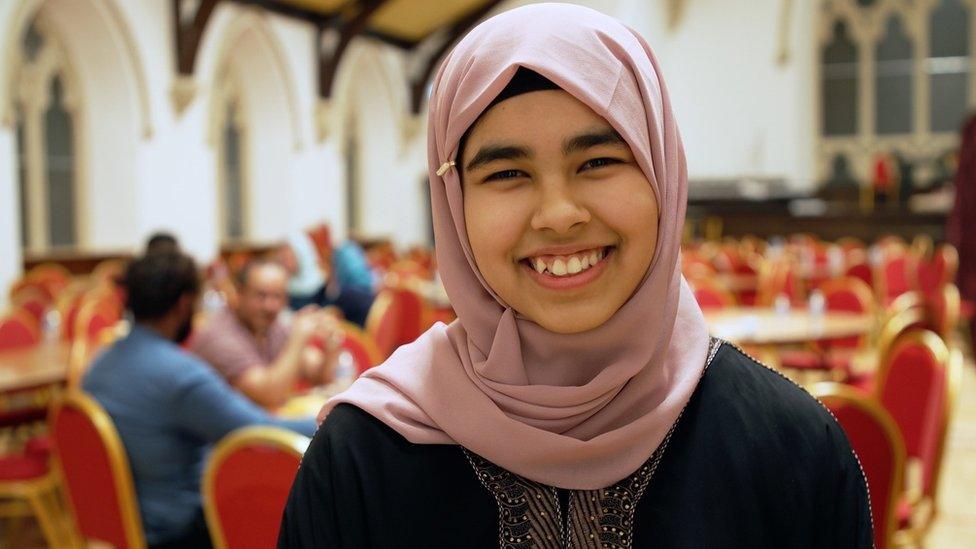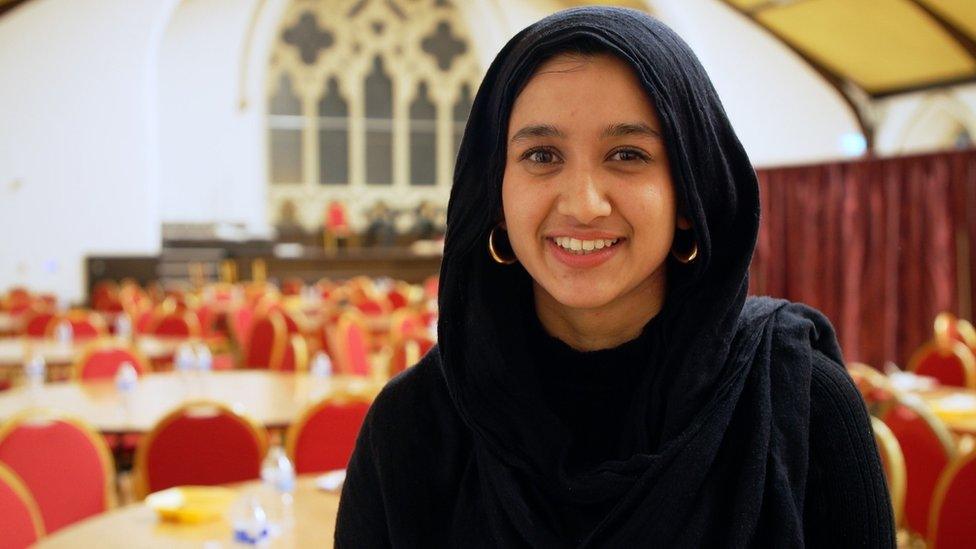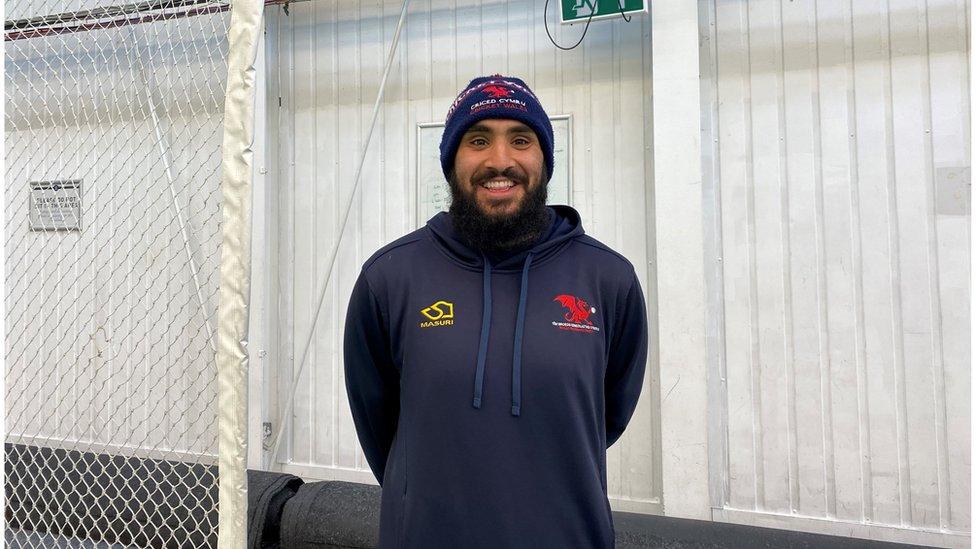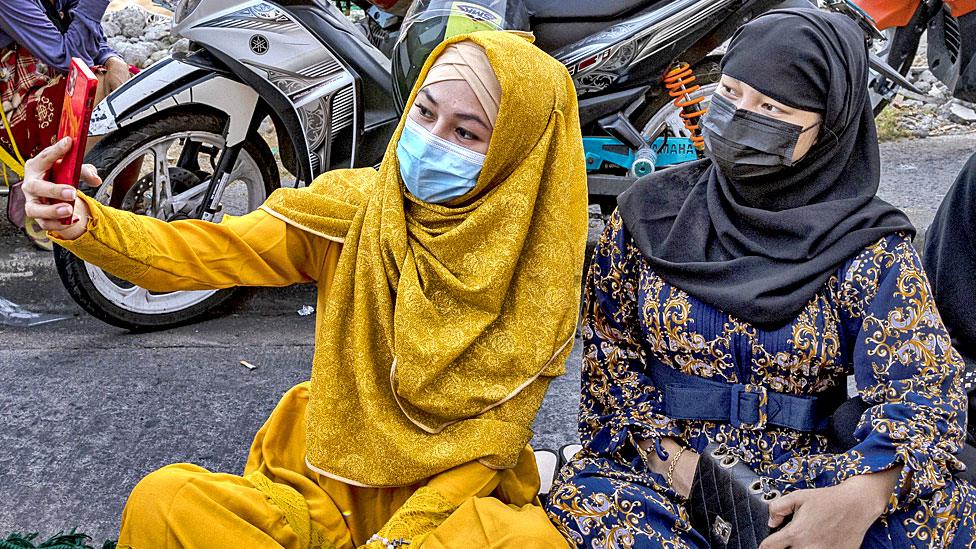Ramadan: First time fasting for young Muslims
- Published
Ramadan: What's it like fasting for the first time?
Young people fasting for the first time during Ramadan have described how the past month has been.
"It makes you feel like you're part of something bigger," said 13-year-old Zain.
It is a sentiment shared by Nuha, also 13, also fasting for the first time.
Zain, from Swansea, and Nuha, from Port Talbot, are among millions of Muslims who have been abstaining from eating and drinking during daylight hours during the month of Ramadan.
"It feels quite cool… like 'wow I'm part of this bigger picture,' like this bigger community than just me," said Nuha.
Fasting is the main element of the month, which also focuses on self-improvement, reflection and giving to the less fortunate.
'I go on my phone a lot'

Nuha said Ramadan made her think about her phone habits and the amount of time spent on her phone
But it has also helped reflect on how it has helped them reflect on their daily habits - such as mobile phone use.
Nuha, 13, said: "I go on my phone a lot, I realised.
"When I cut it out [of] my day, I realised how much I actually spent on my phone, and how much time I wasted."
The practice of fasting for Ramadan usually begins in the early teens, and the end is marked with Eid.
Zain, 13, from Swansea, said: "I was quite proud of what I achieved. I can achieve anything if I achieved that."
Although they have both found fasting a challenge at times, Zain and Nuha both said that they have learned a lot from their experiences.
'More challenging'
"At the end of the day, at iftar time, it didn't really take much food for me to be full, which is something I didn't expect after being hungry through the day. It shows that we waste a lot of food," said Zain.
He said fasting got "more challenging as time went on," particularly in school, but that there was more to the month than abstaining from eating and drinking.
"It's not just about fasting. Also a big part of Ramadan is giving to charity and improving yourself as a person."
A central theme during the month of Ramadan is to donate money to charity and contribute in other ways to charitable causes.
Charity Islamic-Relief estimates that Muslims donated over £150m to charity during Ramadan 2020.
'You learn how to get rid of unnecessary habits'

Amana has been fasting over the holy month for several years now
Amana, 22, has been fasting for a few years, but said she loved it every time.
She said: "I think that it's such a nice time of year to reset and go back to your core values. You learn how to get rid of a lot of your unnecessary habits."
The final year student at Swansea University said that sometimes people did not realise that not everyone has to fast during Ramadan.
"It is one of the five pillars, but you don't have to fast if you're not able to."
Although there can be health benefits to fasting, during Ramadan, some are exempt, particularly if it is deemed healthier not to do so.
This includes women who are menstruating or breastfeeding, the elderly, people who are unwell or those travelling.
For Amana, like Zain and Nuha, the sense of community is central to her experience.
"It feels really cool, feels really interesting, to be connected to the whole Muslim community across the world," said Amana.
"Knowing that we're all connected with Ramadan and we're all going through the same challenges, learning about your religion in your own way, all experiencing faith in different ways."

THE ASIAN WELSH: How immigration from the Indian subcontinent transformed Welsh health, culture and the economy
FIGHT FOR YOUR RIGHTS: X-Ray returns and they've got your back

- Published11 April 2022

- Published13 May 2021
